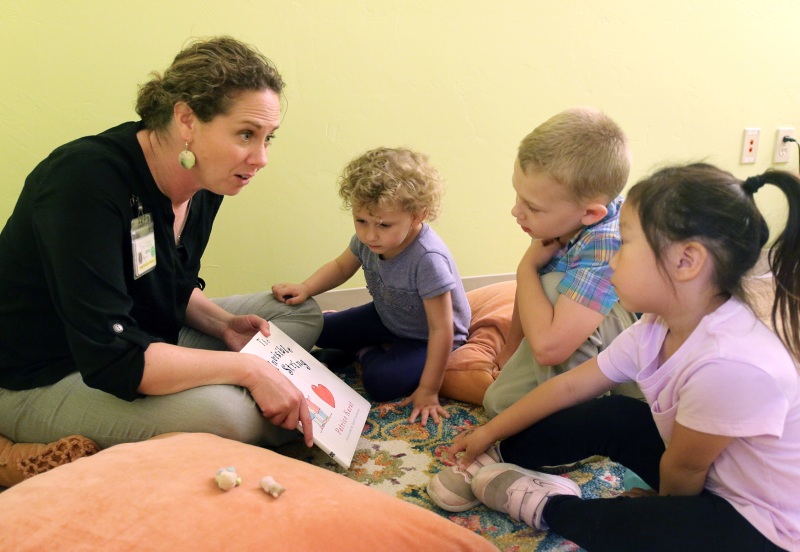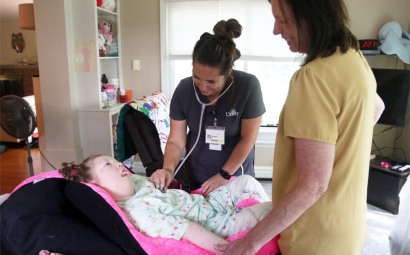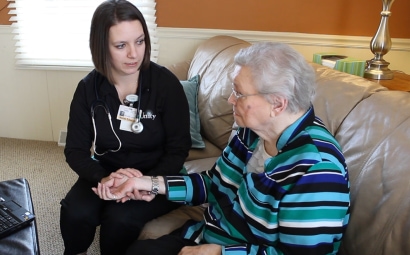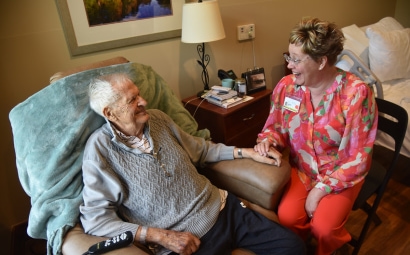Extensive Hospice Grief Services Matter
Hospice bereavement care is specialized support offered to individuals and families who are grieving the loss of a loved one. At its heart, bereavement care is about honoring the whole family's experience. It validates pain of loss while providing the tools needed to navigate a path toward healing and remembrance. Beyond just offering a listening ear, hospice bereavement provides ongoing comfort, guidance, resources, and education to help individuals navigate grief and loss. Most people feel strengthened, encouraged, and supported when they learn about grief, understand how it affects them, identify coping strategies, and learn new methods to help themselves through the grief experience.
The Medicare Hospice Benefit requires all hospice providers to offer bereavement counseling, including emotional, psychological, and spiritual support, before and after the death of a hospice patient. These requirements are broad which means the breadth and quality of hospice bereavement programming varies greatly.
Comprehensive hospice bereavement programs offer a lifeline during one of life’s most challenging times. They recognize that each person grieves differently and provide a broad range of support tailored to individuals of every age. When researching hospice organizations, ensure they honor the unique ways people grieve by offering a variety of in-person, virtual, and phone support to meet you wherever you are in your grief journey.
Here is a list of grief support services offered by the most robust hospice bereavement programs:
- Free-standing Grief and Education Center offering grieving individuals of all ages a safe haven to learn about grief, share experiences, and find hope
- Licensed grief counselors, social workers, and trained volunteers who provide compassionate grief support at no cost
- Individual and family counseling
- Grief groups for children, teens, families, and adults to connect with others who are grieving
- Telephone check-ins as requested
- Mailed grief resources over the course of 13 months offering tips for practical coping strategies
- A grief resources lending library containing printed materials
- Memorial services throughout the year, including the holiday season, to gather with others and honor loved ones
- Anticipatory grief support because grief can start before the death
- Grief consultation, workshops, and training for businesses, schools, and the community
- One-on-One Counseling: Private sessions with trained and licensed staff
- Support Groups: Professionally led groups that connect people with others who understand what they're going through
- Educational Materials: Resources that explain the grieving process and provide practical coping strategies
- Supportive Communication: Gentle check-in calls and mailings that remind families they haven't been forgotten
- Memorial Programs
- Holiday Programming
- Grief support that extends into the community such as schools, community organizations, and nursing facilities
Understanding the Difference Between Bereavement and Grief
Many people think that grief and bereavement are the same thing, but they have different meanings.
- Grief is the feeling of sadness and mourning after the death of a love one which is a normal reaction to loss
- Bereavement: the time-period after someone dies when you feel grief
It’s important to realize that grief isn’t linear, and everyone experiences it differently. Contrary to popular belief, grief doesn’t start when a loved-one dies. Oftentimes, both the patient and family experience emotional responses throughout the health care journey called anticipatory grief. Anticipatory grief may involve feelings of sadness, guilt, anger, and fear before an anticipated or impending death.
Signs You May Benefit From Grief Support Services
- Struggling with daily tasks: You have trouble with basic self-care, like hygiene, or can't get out of bed or complete daily routines.
- Feelings of Hopelessness: You have ongoing feelings of depression.
- Intense or prolonged sadness: You feel intense, unconsolable sadness or rage, and the feelings don't seem to be getting better.
- Difficulty with reality: You struggle to accept that your loved one is gone, or you are plagued by guilt or self-blame.
- Intrusive or obsessive thoughts: You are stuck on a particular memory or conversation, or have new obsessive-compulsive behaviors.
- Avoiding others: You are avoiding friends, family, or social situations, even those you once enjoyed.
- Feeling isolated: You feel a lack of support or empathy from your existing network, or feel geographically distant from family and friends.
- Changes in appetite or sleep: You have a poor appetite, are losing weight, or are experiencing insomnia or other sleep disruptions.
- Substance abuse: You are using or increasing your use of drugs or alcohol to numb the pain.
- Lack of improvement: The overwhelming feelings of grief remain overbearing or get worse over time.
- Grief seems to be taking over: Your grief is all-encompassing and preventing you from adjusting to life without your loved one after several months.
Unity grief support services are offered at no charge to anyone in the community who has experienced a death. We truly believe no one in our communities should grieve alone. Discover how Unity Grief and Education Center can help by calling 920-338-1111 or completing this online form.
Access Our Toolkit of Resources
- How Hospice Helps
- Hospice Myth vs Fact
- Signs to Start Hospice Care
- Hospice Comparison Checklist
- Grief Support Comparison Checklist


Extensive Grief Support Services Matter
It is important to ask a hospice provider if they have a robust bereavement and grief support program.











